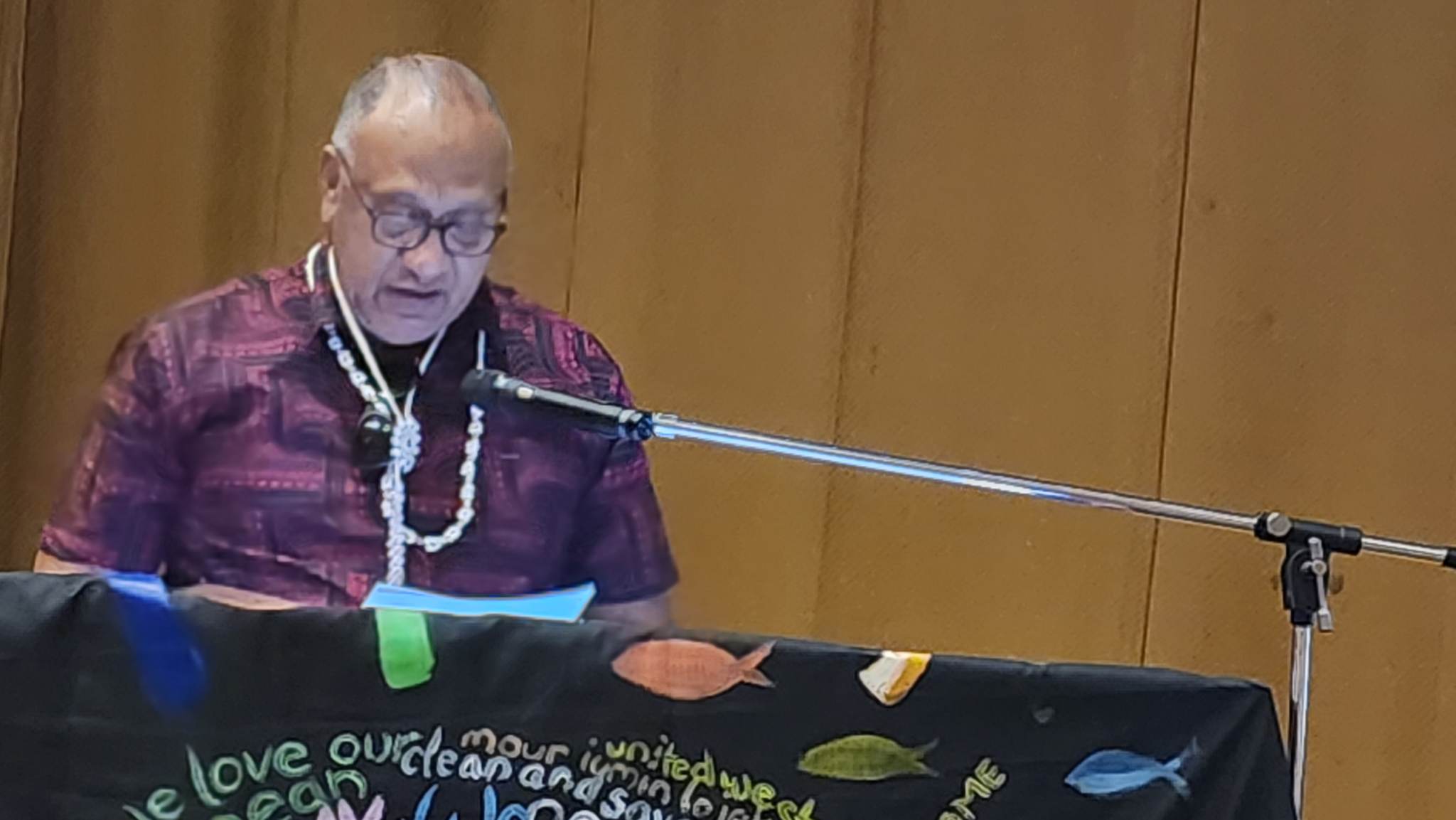Bula Vinaka and a special Iakwe and greetings to you all. I thank you for the invitation to join you today to mark this important day. Unfortunately, Secretary General Henry Puna is not able to join us today – but let me assure you that you do not have a stronger supporter and partner in theses efforts than him. I coney his well wishes.
Every year on this day without fail the clock stops for Marshallese people of all walks of life as family take the time to reflect in solemn silence on the rather unfortunate tragedy of the Bravo Test. Likewise I am here today to join you on this important occasion to commemorate and honour the lives lost and survivors of nuclear tests. This is important not only in tribute to them, but more importantly to raise awareness about the consequences of nuclear proliferation, and to advocate for an end to all forms of nuclear weapons.
Many thanks to my fellow Marshallese here in Suva for supporting this event every year. I also commend the Marshall Islands Students Association and USP students for convening this important event and supporting the advocacy against nuclear weapons.
We do feel a sense of obligation to commemorate the lives lost and the survivors of this atrocity. We should not forget. It builds awareness and helps inform of all of us of the ongoing unresolved nuclear testing legacy issues, not only for the Marshall Islands, but the broader Blue Pacific Continent. As many will recall, our region endured five decades of nuclear tests the impacts of which we are today almost a period of 70 years – are impacting on human health and the environment. The Runit Dome you might have heard is now going to be a challenge for the whole region. Those who are responsible for these events must be held to account – on the basis that, if not a legal one – then a moral obligation, to step up and clean up your mess.
Just last week, our Pacific Islands Forum Leaders reiterated strong concerns for the significance of the potential threat of nuclear contamination to the health and security of the Blue Pacific, its people, and prospects – in connection with Japan’s decision to discharge ALPS treated water into the Pacific Ocean and as such, it is important to intensify political and scientific dialogue with Japan and the IAEA to safeguard our region against any further nuclear contamination that would impact human health and that of the environment.
Our 2050 Strategy for the Blue Pacific Continent cements our Leaders’ collective resolve against the proliferation of nuclear weapons and radioactive waste, principles firmly rooted in our very South Pacific Nuclear Free Zone Treaty aka Rarotonga Treaty.
Ladies and Gentlemen, as we remember loved ones and friends taken unjustly through the scourge of war and nuclear testing, let us use these experiences and stories to fuel our hope for a better future in the region, with the 2050 Strategy as our roadmap. Let us remain fully committed to do our part in commemoration of this day not only for nuclear justice – but for the total elimination and prohibition of nuclear weapons.I thank you.
SOURCE: PIFS/PACNEWS















